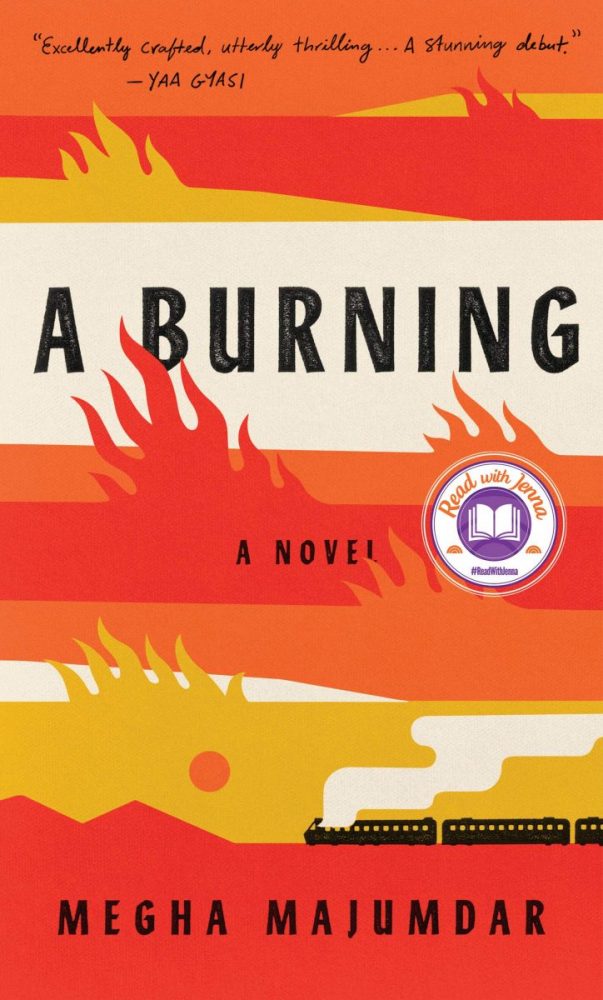The PEN Ten: An Interview with Megha Majumdar
The PEN Ten is PEN America’s weekly interview series. This week, Jared Jackson speaks with Megha Majumdar, author of A Burning (Knopf, 2020).

Photo by Elena Seibert
1. What was the first book or piece of writing that had a profound impact on you?
May I share what this question brings to mind right away—a big, hardcover Reader’s Digest atlas that we had when I was a kid. I spent so much time looking at maps of countries and regions around the world, and figuring out how shades of blue corresponded to depth of ocean. I learned to speak aloud the names of places. That was one of my first favorite books, if we can call an atlas a kind of book, too.
2. What does your creative process look like? How do you maintain momentum and remain inspired?
I work as an editor, so it’s very much a balancing act. What it comes down to, especially in these times when we can’t go to coffee shops and can’t pop into a bookstore for some literary fuel, is the knowledge that writing is an act of discipline, and the discipline has to come from me. An unfinished novel is not a novel.
“What it comes down to, especially in these times when we can’t go to coffee shops and can’t pop into a bookstore for some literary fuel, is the knowledge that writing is an act of discipline, and the discipline has to come from me. An unfinished novel is not a novel.”
3. What is the last book you read? What are you reading next?
I just read Raven Leilani’s novel Luster, which is cutting, sharp, and hilarious. There are so many lines in that book, including a line on debt, which made me laugh! And I just got this book of nonfiction called The Alchemy of Us, by Ainissa Ramirez (ordered online from Greenlight Bookstore!), which showcases inventors of color.
4. What is the most daring thing you’ve ever put into words? Have you ever written something you wish you could take back?
I think it’s this novel, A Burning, which engages the rise of the right wing and how ordinary individuals seek to defy the constraints that their society places upon them.
5. What advice do you have for young writers?
Find what you feel like you must ask, and then ask it as only you can.
“Stories help us imagine what it is like to be another person—to strive as they do, to cope as they do, to celebrate as they do—and that’s a vital task of imagination.”
6. Which writers working today are you most excited by?
Mallika Padma Rao, Bindu Bansinath, and Mayukh Sen are doing exhilarating work, to name three people whose writing I’ve found powerful, moving, and clarifying.
7. Why do you think people need stories?
Stories help us imagine what it is like to be another person—to strive as they do, to cope as they do, to celebrate as they do—and that’s a vital task of imagination.
 8. The quest to finding the right voice for a story can be challenging. Your debut novel, A Burning, features multiple voices that results in a multilayered narrative creating a polyphonic whole. Why did you choose this narrative structure? How did creating meaning at the intersection and assemblage of distinct voices and characters, and seemingly random plot lines, best serve the novel’s intentions and goals?
8. The quest to finding the right voice for a story can be challenging. Your debut novel, A Burning, features multiple voices that results in a multilayered narrative creating a polyphonic whole. Why did you choose this narrative structure? How did creating meaning at the intersection and assemblage of distinct voices and characters, and seemingly random plot lines, best serve the novel’s intentions and goals?
What I wanted most was to write a complex story. I wanted characters who would hold contradictions, who wouldn’t be flattened or simplistic. Having three perspectives allowed me to add layers to the story. And I wanted to explore specific questions through the arc of each character: How do you live at the intersection of different kinds of marginalization and still chase big dreams with humor and joy? When you are given a little bit of power in a society with huge power differentials, how will you adjust your moral compass, and what will you surrender?
“This is a book about a character who fights against an unjust police system, an unjust court system, and chases freedom however she can. This is a book about people who take matters into their own hands, who dare to do what the social systems around them tell them they cannot. This is a book about hatred-filled nationalism, and how we might still dream and seek joy and meaning within that reality.”
9. You are an associate editor at Catapult. With editing and writing being two sides of the same coin, was it difficult to balance the writing—creating words and structure for A Burning—with your editorial instincts, fine-tuning those words? Did it slow the process of generating material? Was there a moment you can pinpoint when the two sides of your literary mind merged?
Being an editor has made me a sharper reader. I know what kind of movement and pacing appeals to me, what kind of surprises I adore on a sentence level, and the questions and themes I am drawn to. So, I think it has been helpful. As with anyone who has a full-time job and also writes, time is scarce, but if we can find 20 minutes here and an hour there, we can make it work.
10. A Burning is set in contemporary India. In fact, the novel’s events unravel because of a Facebook post and even utilizes a hashtag, #KolabaganTrainAttack, in the text. This framing feels particularly relevant, where a social media post criticizing the government can have costly consequences. Can talk about the novel’s genesis and the topics you wished to explore through fiction that are present in our reality?
In the opening pages of the book, there is a curfew, and a video of police indifference/violence affects a character deeply to the point where she is moved to comment on it. It feels chillingly real right now. This is a book about a character who fights against an unjust police system, an unjust court system, and chases freedom however she can. This is a book about people who take matters into their own hands, who dare to do what the social systems around them tell them they cannot. This is a book about hatred-filled nationalism, and how we might still dream and seek joy and meaning within that reality.
Megha Majumdar was born and raised in Kolkata, India. She moved to the United States to attend college at Harvard University, followed by graduate school in social anthropology at Johns Hopkins University. She works as an editor at Catapult and lives in New York City. A Burning is her first book. Follow her on Twitter at @MeghaMaj and Instagram at @megha.maj.






